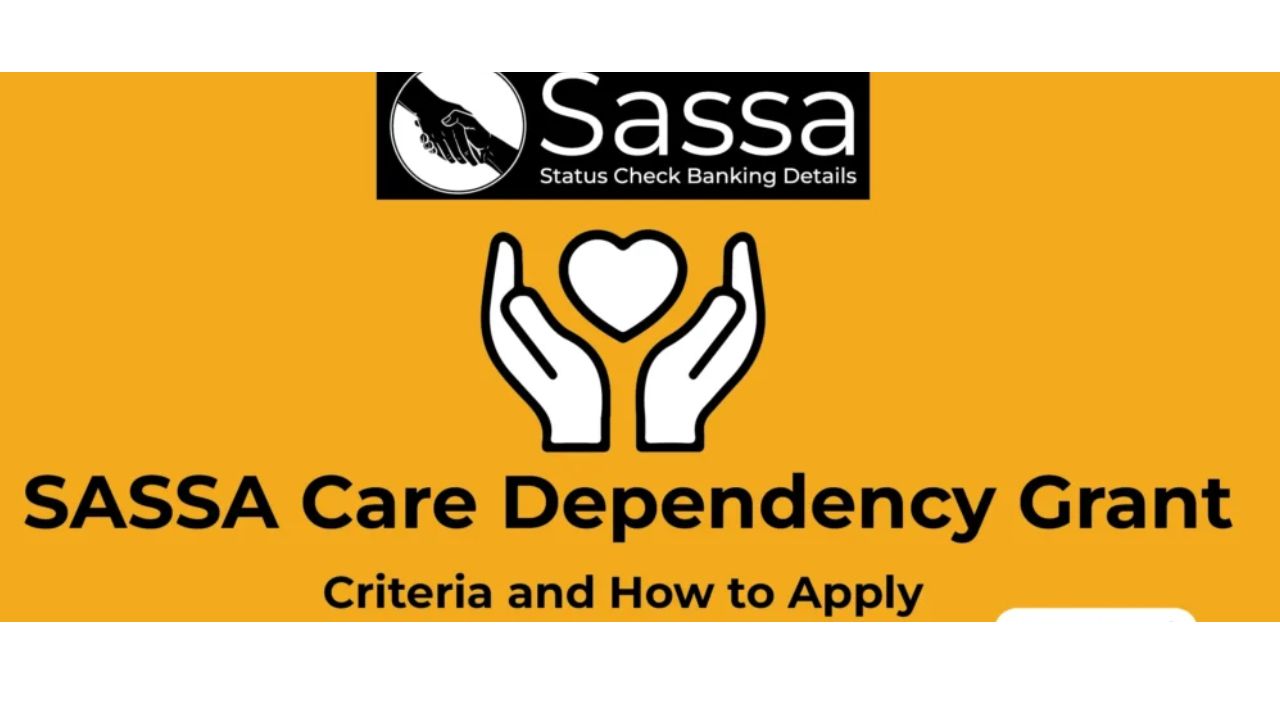People with physical or mental impairments who cannot work are given vital financial help by the South African Social Security Agency (SASSA). One such initiative, Grant-in-Aid (GIA), assists those unable to live independently and needing full-time care. This monthly financial aid is intended to lessen the strain on people and families by guaranteeing they get the required support.
The Ministry of Welfare oversees the Grant-in-Aid program, which attempts to give eligible applicants a small monthly income. To ensure that it still fits recipients’ needs, the allowance amount is evaluated regularly to consider other economic considerations in the caregiver Grant Application.
Caregiver Grant Application:
The (SASSA) plays a crucial role in providing financial assistance to those in need, mainly through its infirmity and care dependency awards. Because of their physical or mental disabilities, these deliveries offer vital support to people and families who are struggling financially. The salient features of these awards, including qualifying requirements, the software process, and suggestions for a successful application, are covered in this article.

What is SASSA?
Established in 2005, SASSA is a government agency responsible for managing social supplies in South Africa. Its goal is to reduce poverty and provide social protection to vulnerable populations, including the underprivileged, the elderly, and those with disabilities. SASSA offers programs, such as old age pensions, child support grants, and disability awards, all intended to address the community’s specific needs.
Allowance:
GIA program participants currently earn R500 per month. Nonetheless, plans have been made to account for increased living expenses. In October, the allowance will climb to R510; subsequently, it will rise to R520. The purpose of these increases is to guarantee that the award remains applicable even in a challenging economic environment.
Eligibility:
It is essential to meet the Grant-in-Aid eligibility requirements to guarantee that the grant is awarded to the people who need it:
- Current Social Grant Recipient: You must receive a disability or older person’s grant to be eligible for the GIA. The initiative is meant to add to the current social subsidies, not replace them. An older adult must have a rapid GIA evaluation if it is their first time applying for a social grant and they need full-time care.
- Full-Time Need for Care: The applicant’s need for full-time care is the primary qualifying need. Those who depend on someone else for their everyday needs due to a physical or mental impairment that makes it impossible for them to take care of themselves are eligible for the GIA.
- Not Residing in a Subsidized Institution: Candidates cannot reside in a facility supported by public funds. This program is designed for those who get private or in-home care but are not eligible for state help.
How Is the Grant Given?
Recipients have two primary options for accessing their monies if the application is approved:
- Electronic Deposit: Funds are deposited straight into a Postbank or bank account. For people who handle their funds, this is the easiest choice.
- Institutional Administration: If the grantee is being cared for by an organization, the institution may handle grant administration on its behalf.
Whether administered independently or via a care facility, these choices guarantee that the award reaches the people who need it the most.
Application:
Several processes in the Grant-in-Aid application procedure are intended to ensure that only eligible recipients get the funding. What you should do is as follows:
- Visit a SASSA Office: Return all required documentation to the closest office.
- Complete the following form: The application must be completed before a SASSA official. This officer will interview you to determine your eligibility.
- Medical Evaluation: SASSA will dispatch a physician to determine if the applicant requires full-time care. This step is essential to deciding what is crucial to finding IA.
- Request on Behalf: If you are too old or sick to attend the office, a friend or family member may apply on your behalf. You must supply a letter stating why you cannot travel or a note from your doctor.
Documents:
The GIA application procedure requires the completion of certain documents. Among them are:
- An affidavit in writing
- original identification document
- a disability-confirming medical report
- Documents proving one’s marital status (such as a divorce decree, marriage certificate, or signed affidavit declaring one is single)
A seamless application procedure is ensured by having this documentation in place.
Appeals Process:
If SASSA rejects your application, it will notify you of the decision. Nonetheless, you have ninety days to file an appeal with the Minister of Social Development if you think the decision was made incorrectly. The appeals procedure offers a chance to contest the ruling and request a reexamination.
The GIA program provides those in need of full-time care with much-needed financial help. Its meticulous application procedure guarantees that this assistance is only given to those who need it. SASSA strives to uphold equity and accessibility for all qualified persons through frequent allowance modifications and the option to file an appeal.
